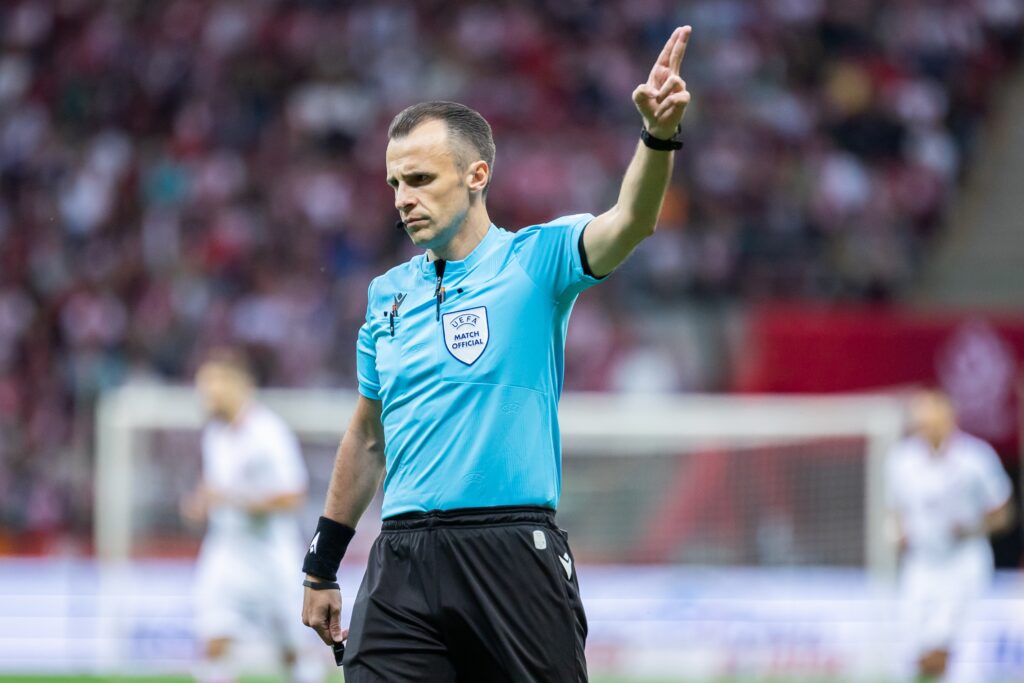Is mental imagery a gimmick or a useful mental game skill to improve refereeing performance?
The reality is that many officials do use visualisation on a daily basis as part of their training regime, and with great success.
These referees talk about a number of benefits they have received through visualisation, including:
- Increased levels of confidence
- Poise under pressure
- Greater consistency in decision making
- Improvement in the ability to focus on their fixture
If so many successful officials visualise, what exactly is holding you back from adopting this reliable performance enhancement strategy?
Most referees use mental imagery naturally when they train and on matchday. They just don’t call it this:
- They “see” careless, reckless and serious foul play challenges.
- They visualise challenge from behind the ball.
- They feel player aggression as they call them over.
- They see the changing phases of play in their heads.
You too, can use mental imagery to your advantage. How do you use it?
You can use it prior to any fixture. The key is to use what’s your comfortable style for you.
I was working with an official in the professional game last year and we started talking about routines and visualising passages of play.
He said: “I can’t really see the next phase in my mind, but I’ve heard so many other ref(eree)s talking about it.”
“Why can’t I see the changes in my mind when I try so hard to and everyone else can?”
I said to the referee, “That’s not your preference of learning and performing.”
See, not everyone can actually “visualise” making decisions or see the path of the ball because some officials are more kinaesthetic or feel-oriented, which is not a bad thing.
So we started talking about what “images” he could use in his routine to take advantage of mental imagery.
If you’re predominately a “feel” referee, you might think about good balance, tempo, or feeling free with your decision making.
Think back to a game or performance where you officiated well. What types of images did you use when refereeing? You might want to replicate the same images on future matchdays.
But you certainly don’t want to force yourself into a style of imagery that doesn’t suit you.
It doesn’t matter if you are awarding penalties or dismissing players, the same concept applies: use the right images for your learning style.
One note: Many officials are a combination of visual, kinaesthetic, auditory, and tactile. So use the images that work for you!
The images in your mind prime your mind and body for success by imprinting successful outcomes in your mind.
Former professional basketball player Ian Mahinmi puts it this way, “It [positive imaging] is like building muscle memory, but for your brain.” It’s really motor memory, but some coaches refer to is as muscle memory.
Mental Imagery & Your Performance
1. Relax and get comfortable. This will help quiet your mind.
2. See and/or feel yourself performing how you want to on matchday.
3. Use as many senses as possible to have a more realistic experience.
4. Rehearse only positive outcomes in the beginning.
5. Immerse yourself in the emotions you would experience when performing successfully.
Bonus tip: Make sure you tap into your dominant learning and performing style when using mental rehearsal. Are you primarily a visual learner or a feel-oriented learner?
You can improve the mental skill of visualisation with practice. Use your imagination to program yourself for success!
At The Third Team I work individually and in collaboration with different professionals where I have developed workshops and 1-2-1 sessions associated with Resilience and Mental Toughness Development to help referees. The workshops and 1-2-1 sessions are interactive, where referees are encouraged to open up and share their experiences to help themselves and each other.
Feel free to contact me if you’d like to know more about my workshops or 1-2-1 sessions and how I could help you or your officials.
Best Wishes,

Nathan Sherratt
Referee Educator & Managing Director of The Third Team

Nathan Sherratt
Nathan Sherratt, Referee Educator, Resilience Trainer and Managing Director of The Third Team. A Mental Toughness Practitioner based in County Durham, North East England.

